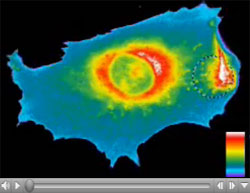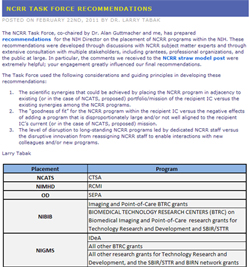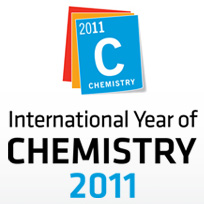Today is my last day as Director of NIGMS. It is hard to believe that almost 8 years have passed since I was first offered this tremendous opportunity to serve the scientific community. It has been a privilege to work with the outstanding staff members at NIGMS and NIH, as well as with so many of you across the country.
As I write my final post, I find myself recalling a statement I heard from then-NIH Director Elias Zerhouni during my first few years here: It is very difficult to translate that which you do not understand. He made this comment in the context of discussions about the balance between basic and applied research, which certainly has applicability in this setting and is relevant in a broader context as well. In some ways, it has also been my mantra for the NIGMS Feedback Loop.
Early in my time at NIH, I was struck by how often even relatively well-informed members of the scientific community did not understand the underlying bases for NIH policies and trends. Information voids were often filled with rumors that were sometimes very far removed from reality. The desire to provide useful information to the scientific community motivated me and others at NIGMS to start the Feedback Loop, first as an electronic newsletter and, for the past 2 years, as a blog. Our goal was–and is–to provide information and data that members of the scientific community can use to take maximal advantage of the opportunities provided across NIH and to understand the rationales behind long-standing and more recent NIH policies and initiatives.
I chose the name Feedback Loop with the hope that this venue would provide more than just a vehicle for pushing out information. I wanted it to promote two-way communication, with members of the scientific community feeling comfortable sharing their thoughts about the material presented or about other issues of interest to them. In biology, feedback loops serve as important regulatory mechanisms that allow systems to adjust to changes in their environments. I hoped that NIGMS’ “feedback loop” would serve a similar role.
I am pleased with our progress toward this goal, but there is considerable room for further evolution. The emergence and success of similar blogs such as Rock Talk are encouraging signs. I know that NIGMS Acting Director Judith Greenberg shares my enthusiasm for communication with the community, and I hope that the new NIGMS Director will too. I encourage you to continue to play your part, participate in the discussions and engage in the sort of dialogue that will best serve the scientific community.
I plan to continue communicating with many of you in my new position as a member of the extramural scientific community. For the time being, you can reach me at jeremybergtemp@gmail.com.


 NIH is seeking broad input from the scientific community on challenges and opportunities in single-cell analysis, a topic of great interest and relevance to many NIGMS grantees and applicants. Please help NIH shape its future programs in this emerging research area by sending in your opinions. The
NIH is seeking broad input from the scientific community on challenges and opportunities in single-cell analysis, a topic of great interest and relevance to many NIGMS grantees and applicants. Please help NIH shape its future programs in this emerging research area by sending in your opinions. The  I have previously noted that NIH has proposed creating a new entity, the National Center for Advancing Translational Sciences (NCATS), to house a number of existing programs relating to the discipline of translational science and the development of novel therapeutics. Plans for NCATS have been coupled to a proposal to dismantle the National Center for Research Resources (NCRR), in part because the largest program within NCRR, the Clinical and Translational Science Awards, would be transferred to NCATS and in part because of a statutory limitation on the number of institutes and centers at NIH.
I have previously noted that NIH has proposed creating a new entity, the National Center for Advancing Translational Sciences (NCATS), to house a number of existing programs relating to the discipline of translational science and the development of novel therapeutics. Plans for NCATS have been coupled to a proposal to dismantle the National Center for Research Resources (NCRR), in part because the largest program within NCRR, the Clinical and Translational Science Awards, would be transferred to NCATS and in part because of a statutory limitation on the number of institutes and centers at NIH. The launch of the International Year of Chemistry 2011 is a good opportunity to reflect on the NIGMS role in supporting research in this central field of science. NIGMS is the leading institute at NIH in funding chemical research, supporting a range of studies focusing on such areas as the development of synthetic methodologies for new drug discovery and synthesis; the role of metals in biological systems; and the discovery of new analytical techniques for the detection, identification and quantification of human metabolites. In fact, just about every branch of chemistry has a connection to the study of human health.
The launch of the International Year of Chemistry 2011 is a good opportunity to reflect on the NIGMS role in supporting research in this central field of science. NIGMS is the leading institute at NIH in funding chemical research, supporting a range of studies focusing on such areas as the development of synthetic methodologies for new drug discovery and synthesis; the role of metals in biological systems; and the discovery of new analytical techniques for the detection, identification and quantification of human metabolites. In fact, just about every branch of chemistry has a connection to the study of human health.